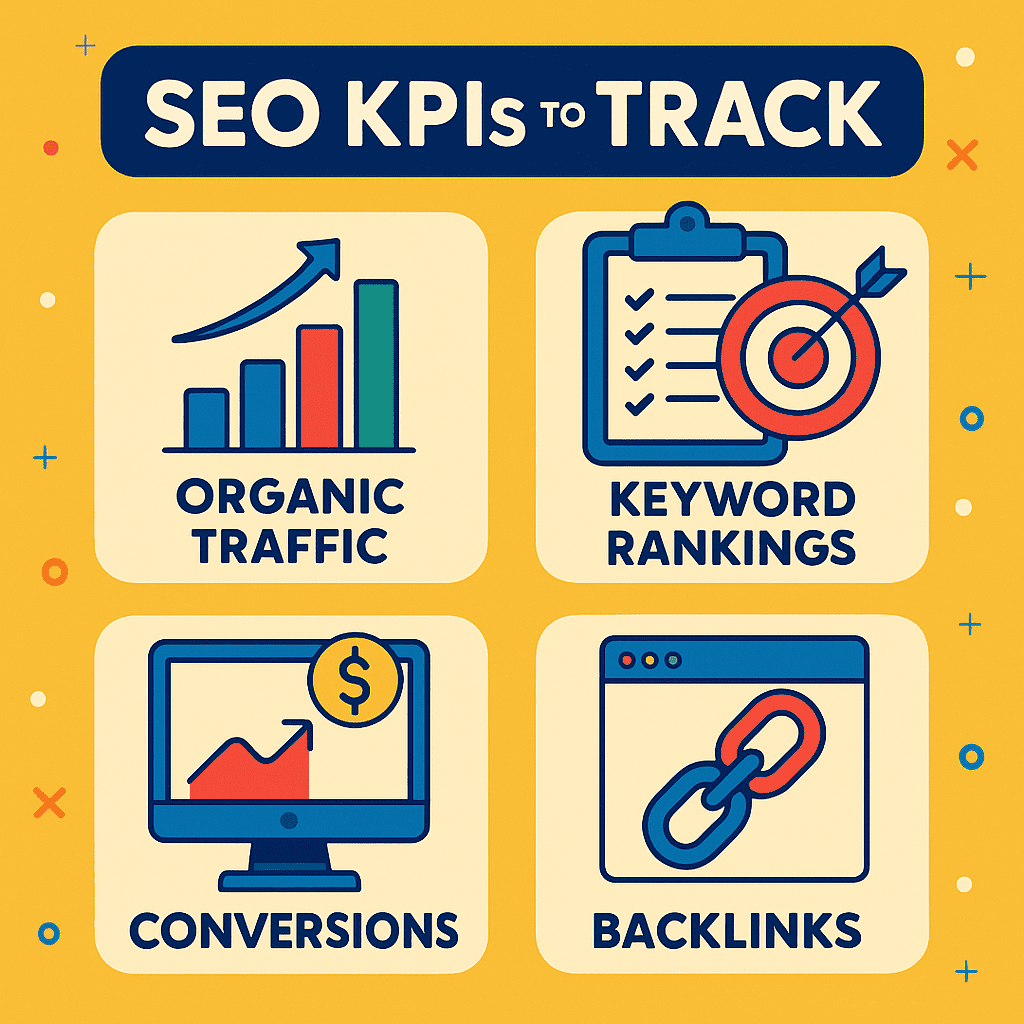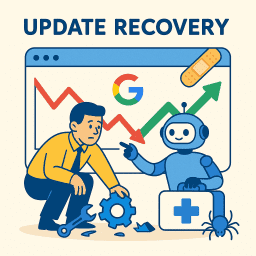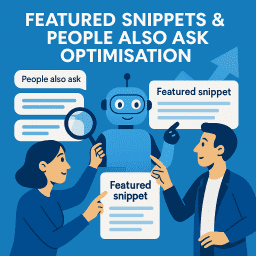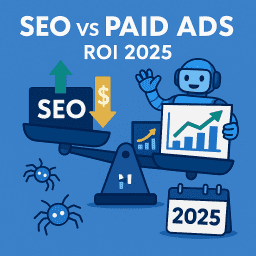SEO KPIs That Actually Matter: How to Track Success in 2025
Measure what moves the needle—not just what looks good

🎯 Forget Vanity Metrics: Focus on What Moves the Needle
📊 SEO without tracking is guesswork. And tracking the wrong things? That’s just vanity. In 2025, smart SEO is about focus—on the metrics that actually impact visibility, conversions, and business growth.
It’s easy to get distracted by rankings, impressions, or traffic spikes. But the real power lies in the KPIs that tell you what’s working, what’s wasting time, and what needs refining. This guide breaks down the SEO KPIs that matter—so you can track progress, prove ROI, and scale effectively.
🎯 What Are SEO KPIs?
KPI stands for Key Performance Indicator—a measurable value that demonstrates how effectively a campaign or tactic is achieving objectives.
In SEO, KPIs go beyond vanity metrics. They help you answer questions like:
- Is our content bringing in qualified traffic?
- Are users converting from organic search?
- Are we improving visibility in the right places?
🔍 SEO KPIs That Actually Matter in 2025
1. Organic Search Traffic
What it tells you: The number of visitors landing on your site via unpaid search results.
Why it matters: It’s the clearest measure of how well your site is performing in organic search—but must be paired with quality indicators.
Tools: Google Analytics 4, Search Console
2. Organic Impressions
What it tells you: How often your pages are shown in search results.
Why it matters: Impressions indicate your reach. A rise in impressions (especially for targeted terms) means Google is noticing you more.
Tools: Google Search Console
3. Click-Through Rate (CTR)
What it tells you: The percentage of people who clicked your link after seeing it in search results.
Why it matters: A low CTR means your meta title or description isn’t compelling—or your position isn’t strong enough to attract clicks.
Pro Tip: Optimise pages that rank on page one but have CTR under 2%.
4. Keyword Rankings (Tracked Over Time)
What it tells you: Where your content ranks for target keywords.
Why it matters: Tracking rankings helps you monitor progress and identify content that needs updating. Focus on position trends, not single-day movements.
Tools: Semrush, Ahrefs, SE Ranking, Nightwatch
5. Conversions from Organic Search
What it tells you: How many leads, sales, signups, or other goals originated from organic traffic.
Why it matters: Traffic without conversions is just noise. SEO should deliver ROI.
Tools: GA4, HubSpot, CRM integrations
6. Assisted Conversions
What it tells you: Conversions where organic search played a role—e.g. first interaction before a paid or direct conversion.
Why it matters: Especially useful in B2B and longer sales cycles. SEO may not close the sale, but it starts the journey.
7. Bounce Rate / Engagement Rate
What it tells you: Whether users stick around or leave immediately.
Why it matters: High bounce rates may signal misaligned search intent. GA4’s Engagement Rate offers more nuance—showing how long users stayed and interacted.
8. Pages Per Session
What it tells you: How deeply users engage with your site.
Why it matters: If users visit multiple pages, your content and navigation are working well. A low number might mean poor internal linking or unclear CTAs.
9. Average Position Across Keywords
What it tells you: Your average rank in the SERPs across all tracked keywords.
Why it matters: A useful barometer for overall site health. Keep in mind: branded terms will inflate this number.
10. Top Performing Landing Pages (Organic)
What it tells you: Which pages attract the most organic visitors.
Why it matters: Spot your content MVPs. These pages should be updated regularly, linked to, and used to funnel traffic to BoFu pages.
11. Crawl Errors & Indexing Issues
What it tells you: Whether search engines can access and index your content correctly.
Why it matters: If Google can’t see it, it can’t rank it.
Tools: Google Search Console, Screaming Frog
12. Backlinks & Referring Domains
What it tells you: The number and quality of inbound links to your site.
Why it matters: Strong, relevant backlinks remain one of Google’s top ranking factors. Track growth and source quality—not just numbers.
Tools: Ahrefs, Majestic, Semrush
📈 Segment KPIs by Funnel Stage
| Funnel Stage | Example KPIs |
|---|---|
| Top-of-Funnel | Impressions, keyword ranking, traffic, CTR |
| Middle-of-Funnel | Engagement rate, pages per session, downloads |
| Bottom-of-Funnel | Conversions, assisted conversions, organic revenue |
🔄 How Often Should You Track SEO KPIs?
- Weekly: CTR, impressions, top queries
- Monthly: Rankings, traffic, conversions
- Quarterly: Backlinks, keyword strategy review, content audits
Note: Don’t panic over weekly fluctuations. SEO takes time. Focus on trends, not snapshots.
⚙️ Recommended Tools for KPI Tracking
- Google Search Console: Impressions, clicks, CTR, indexing
- Google Analytics 4: Traffic, engagement, conversions
- Looker Studio: Custom SEO dashboards
- Ahrefs / Semrush: Keyword tracking, backlinks, content audits
- Screaming Frog: Technical site health
🚫 Vanity Metrics to Be Wary Of
- Raw traffic with no segmentation or quality filter
- “Keyword count” with no relevance to intent
- Bounce rate alone (without context)
- Social shares that don’t impact SEO
🧠 What the Experts Are Saying
“If a client can’t explain your SEO report to their boss, you’ve failed.” — Wil Reynolds
“Reports should show impact, not just activity. Focus on outcomes.” — Areej AbuAli
“Your SEO report is a retention tool. Make it beautiful, make it useful.” — Ross Simmonds
📝 Recap and Clarify: Post-Specific FAQs
What’s the most important SEO KPI?
Conversions from organic traffic. Traffic is useful, but it’s business results that matter most.
How do I know if my SEO is working?
Track organic traffic growth, improved keyword rankings, increased leads/sales, and stronger backlink profiles over time.
How often should I report SEO performance?
Monthly reports are ideal, with weekly check-ins for CTR and crawl issues. Quarterly reviews help align strategy.
💬 Final Thought
“In SEO, what gets measured gets improved—but only if you measure the right things.” — David Roche

















